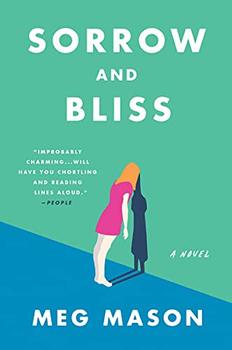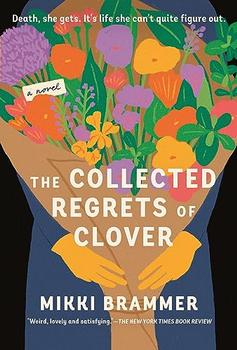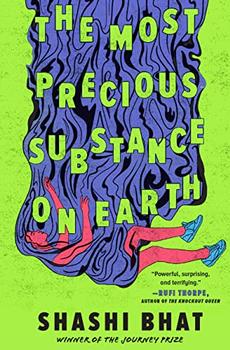Summary | Excerpt | Reviews | Beyond the book | Read-Alikes | Genres & Themes | Author Bio

A compulsively readable debut novel - spiky, sharp, intriguingly dark, and tender - about a woman on the edge that combines the psychological insight of Sally Rooney with the sharp humor of Nina Stibbe and the emotional resonance of Eleanor Oliphant Is Completely Fine.
Martha Friel just turned forty. Once, she worked at Vogue and planned to write a novel. Now, she creates internet content. She used to live in a pied-à-terre in Paris. Now she lives in a gated community in Oxford, the only person she knows without a PhD, a baby or both, in a house she hates but cannot bear to leave. But she must leave, now that her husband Patrick—the kind who cooks, throws her birthday parties, who loves her and has only ever wanted her to be happy—has just moved out.
Because there's something wrong with Martha, and has been for a long time. When she was seventeen, a little bomb went off in her brain and she was never the same. But countless doctors, endless therapy, every kind of drug later, she still doesn't know what's wrong, why she spends days unable to get out of bed or alienates both strangers and her loved ones with casually cruel remarks.
And she has nowhere to go except her childhood home: a bohemian (dilapidated) townhouse in a romantic (rundown) part of London—to live with her mother, a minorly important sculptor (and major drinker) and her father, a famous poet (though unpublished) and try to survive without the devoted, potty-mouthed sister who made all the chaos bearable back then, and is now too busy or too fed up to deal with her.
But maybe, by starting over, Martha will get to write a better ending for herself—and she'll find out that she's not quite finished after all.
Whilst the book's content is not exactly ground-breaking, its sharp comedy makes it feel fresh. The author also draws striking attention to the delicate, transitory details of everyday life — Martha appreciates, for example, the way a passing cloud makes the light flicker on her sister's face, and the way the veins in her husband's hands bulge as he grips the steering wheel. The precision of Mason's description elevates otherwise mundane scenes into something that feels extraordinary. Sorrow and Bliss touches on many issues surrounding mental illness: its heritability, its destructive effects and the potentially disastrous consequences of misdiagnosis. Mason explores the suppression of past mental illness within families, and the damage and misunderstanding this can cause as the same problems ravage successive generations...continued
Full Review
 (762 words)
(762 words)
(Reviewed by Grace Graham-Taylor).
 In Sorrow and Bliss by Meg Mason, which explores psychological wounds and mental illness, Martha's husband Patrick was sent to boarding school at a young age. The image of boarding schools is deeply embedded in the British psyche. Writers from Enid Blyton to James Joyce have found these strange micro-societies to be rich earth. In fiction, they offer the chance to explore isolation, oppression and hierarchy from a childlike perspective. But what happens when children who begin their lives in such environments, having been separated from their families and placed in a highly regulated atmosphere, grow up?
In Sorrow and Bliss by Meg Mason, which explores psychological wounds and mental illness, Martha's husband Patrick was sent to boarding school at a young age. The image of boarding schools is deeply embedded in the British psyche. Writers from Enid Blyton to James Joyce have found these strange micro-societies to be rich earth. In fiction, they offer the chance to explore isolation, oppression and hierarchy from a childlike perspective. But what happens when children who begin their lives in such environments, having been separated from their families and placed in a highly regulated atmosphere, grow up?
According to some psychotherapists, negative effects of boarding school can be long-lasting, even permanently damaging. The ...

If you liked Sorrow and Bliss, try these:

The Collected Regrets of Clover
by Mikki Brammer
Published 2024
Mikki Brammer's The Collected Regrets of Clover is a big-hearted and life-affirming debut about a death doula who, in caring for others at the end of their life, has forgotten how to live her own, for readers of The Midnight Library.

The Most Precious Substance on Earth
by Shashi Bhat
Published 2023
Journey Prize winner Shashi Bhat's sharp, darkly comic, and poignant story about a high school student's traumatic experience and how it irrevocably alters her life, for fans of 13 Ways of Looking at a Fat Girl, Girlhood, and Pen15.
When you are growing up there are two institutional places that affect you most powerfully: the church, which ...
Click Here to find out who said this, as well as discovering other famous literary quotes!